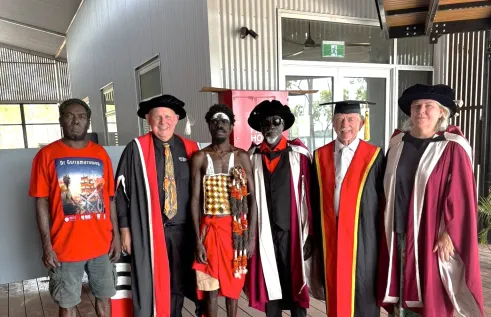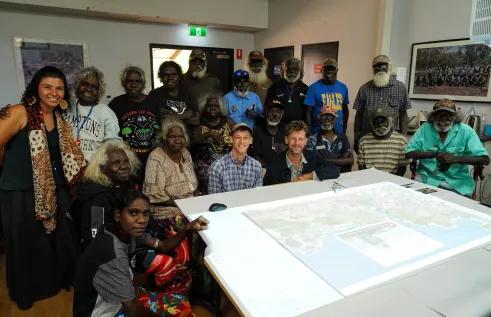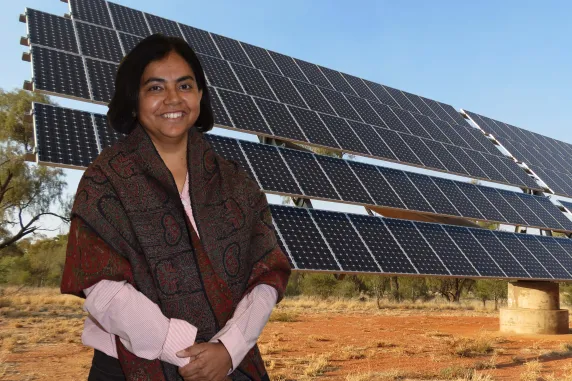News article
Researcher highlights Outback solar panel threat
A Charles Darwin University (CDU) researcher in Alice Springs has warned that urgent action needs to be taken to minimise the environmental threat posed by thousands of photovoltaic (PV) solar panels that will be decommissioned in the next few years.
CDU’s Northern Institute Research Fellow Dr Deepika Mathur said the “End-of-Life Management of Solar PV Panels” project was the first attempt to address the waste management issue in remote Australia, where vast distances and the absence of economies of scale added complexity to finding solutions.
“There’s a perception that everything made can be recycled, but it’s just not that easy. Solar panels were not made to be unmade,” Dr Mathur said.
“As the oldest panels are already reaching their end-of-life, there is a critical need to start planning for the dismantling, removal, collection and recycling phases of management.”
Dr Mathur made the comments during the Solar Waste Project Knowledge Sharing Seminar in Alice Springs, which heard that the capacity to offset some of the economic costs of recycling the NT’s solar PV waste appears limited and economies of scale difficult to achieve until at least the mid-2040s.
“One of our major concerns is that solar panels are being removed prematurely, which may bring forward the waste burden in the NT to 2025, rather than 2040,” she said. “Consumers are changing their PV panels after 10 to 12 years rather than their predicted end-of-working life of 20 to 25 years.
She said PV panels had become a consumer item, much like a mobile phone.
“Working panels are being replaced as technological advances increase efficiency and reduce costs of new panels,” Dr Mathur said.
In the project’s final report, Dr Mathur said a collaborative approach was necessary to manage the issue with responsibility shared among governments, industry and consumers, with a readily accessible fit-for-purpose database needed for capturing installations and removals.
“There is a clear disconnect between the current push to encourage renewables and the absence of any clear policy regarding the management of solar PV waste,” she said.
CDU’s project partners are the Regional Development Australia NT (RDANT) and Desert Knowledge Australia through the Intyalheme Centre for Future Energy. The project was funded by RDANT and the NT Government.
Full report: W: End-of-Life Management of Solar PV Panels
Related Articles

First Yolŋu awarded a PhD through CDU
In an Australian first during a special conferral celebration that took place in remote East Arnhem land at Yalakun outstation last week, a late Yolŋu leader from East Arnhem received a Posthumous PhD.
Read more about First Yolŋu awarded a PhD through CDU
3D printed map brings Elders’ knowledge to life
Multimedia and 3D technology are the latest tools being used by Elders in Maningrida to share their traditional knowledge and ancient stories, facilitated by a collaboration between Charles Darwin University academics.
Read more about 3D printed map brings Elders’ knowledge to life
Research reveals how Australians really feel about the world's largest proposed solar farm
Australians are substantially supportive of renewable megaprojects, but their approval begins to wane if the produced energy doesn’t benefit them, according to a new study examining social acceptance of the proposed world’s largest solar plant.
Read more about Research reveals how Australians really feel about the world's largest proposed solar farm
